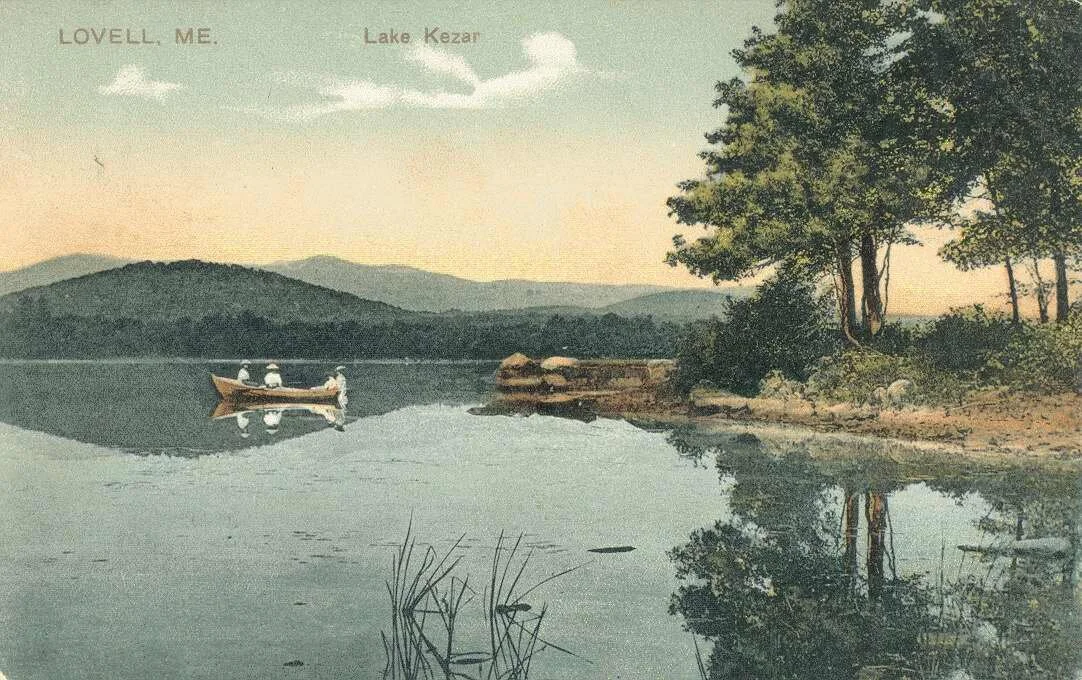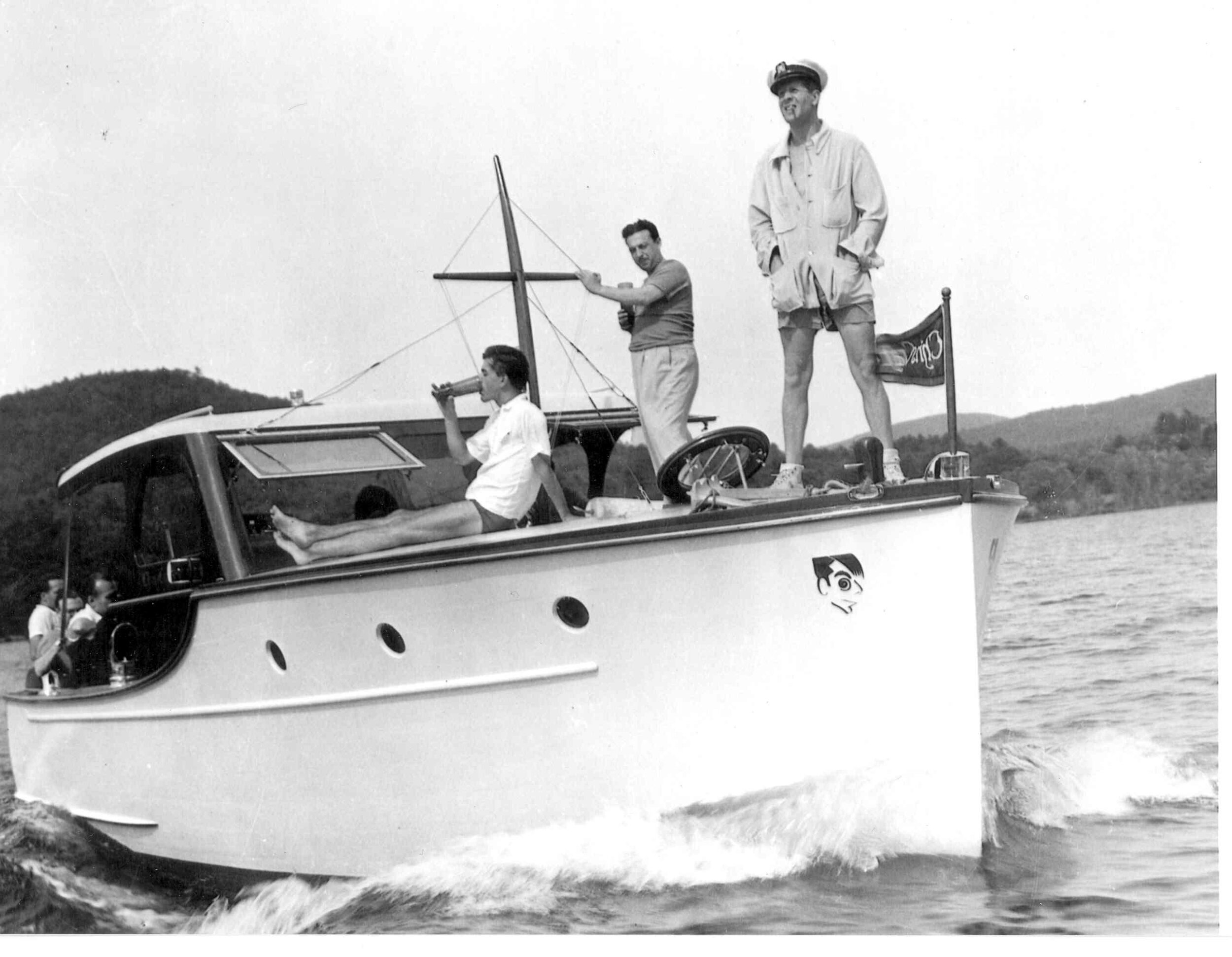What is a Lake?
Wikipedia describes a lake as a “large body of water surrounded by land.” But that’s only part of the story. A lake is a living system that changes over time and interacts with all that is within and around it. Our human interaction with a lake is no less dynamic, both physically and emotionally. At first sight, Kezar Lake’s physical beauty stuns you. Then, slowly, Kezar steals both your heart and soul.
Founded in 1969, the Kezar Lake Watershed Association is deeply committed to its mission statement: “To preserve, protect and maintain the ecological, scenic and recreational resources of Kezar Lake and its watershed.” Monitoring water quality, insuring boat safety, studying loons, encouraging effective landscape buffers for shoreland owners, and studying the impacts of climate change are just some of the ways that KLWA upholds its mission.
Over time, human interaction with Kezar has changed. Through the mid 1800’s agriculture dominated. Most of the area around the lake was open land with pastures and crops running right to the water’s edge. Then, in the 1880’s, “summerfolk” began discovering the area and buying up prime lake frontage. The first of these visitors were five Cambridge boys who camped on the shores and spent their days fishing and hiking beginning in 1889. In 1896, Ben and Annie Brown established Brown’s Camps as a sporting lodge, advertised to be ideal for hunting and fishing.
By the early 1900’s conditions were still very rustic. There was no electricity, icehouses were common, and indoor plumbing was a luxury. The lake itself received an enormous facelift in 1927 when a dam was installed in the outlet, raising the water level by three feet. At that time, most roads were still dirt and it was common to see oxen pulling heavy loads. In the winter, the snow wasn’t plowed but rather packed down by giant rollers which are still displayed annually at the Fryeburg Fair. In 1931, the going rate for a one-week (all-inclusive) stay at a Kezar resort was $17.50 per person!
Rudy Vallee standing on the prow of Banjo Eyes, his 30 foot Chris Craft cabin cruiser. Photo Courtesy of Lovell Historical Society
Kezar’s early quiet demeanor gave way to some serious partying in 1930 when nightclub entrepreneur, Don Dickerson, introduced Kezar to his friend Rudy Vallee. Vallee bought property next to Dickerson and set off a decade of unparalleled show business summers. Alice Faye’s au naturel sun bathing and topless bleach-blond chorus girls riding “water-bikes” made Vallee’s lodge an extremely popular fishing spot during those years.
Quisisana Lakefront Cabin, Photo Courtesy of Lovell Historical Society
Another resort, Quisisana, was founded in 1907 and remains as a Musical Theater Resort to this day. It has a long history of recruiting talented performers from top music and theatrical schools who do chores by day and perform by night. In 1962, famed pianist Vladimir Horowitz came for a three-week stay and had his own Steinway shipped up for his daily practice. One morning Horowitz walked into the office where a budding pianist was typing a schedule of the day’s events. Horowitz watched for a moment and then commented “I’d ask for a job here but I can’t type!”
Beyond its historic and social richness, Kezar’s unique beauty is alluring. Rocks border the eastern shore, while the western shore is framed by the majestic White Mountain range. Large portions of the shoreline remain undeveloped, allowing for a feeling of pristine beauty. But Kezar is not just a place; it’s a community. Those who know the lake and love it believe it to be one of the most beautiful spots in the world.
The following is a small sampling of quotes from folks around the lake. Perhaps you can hear echoes of your own thoughts and feelings in them:
“Kezar gets into your soul and once it’s there, it’s the place you think about all year long.”
“While deployed to Vietnam I carried a picture of camp and the lake with me. I looked at that picture every night. It was my anchor.”
“It’s why we bought a pontoon boat…so the kids and grandkids could share our love of the lake and experience its velvet water.”
“I have been coming to Kezar for over 70 years. To me the lake holds a mystical quality. I always have a deeper sense of happiness, family and well being when there.”
“When my father decided to sell our family home, the sadness was short lived, because we soon realized that our hearts were not with that house but rather with our camp on Kezar. The camp’s been in our family for six generations and we consider it the most beautiful place on earth.”
“When I am on the lake, my soul rests.”



